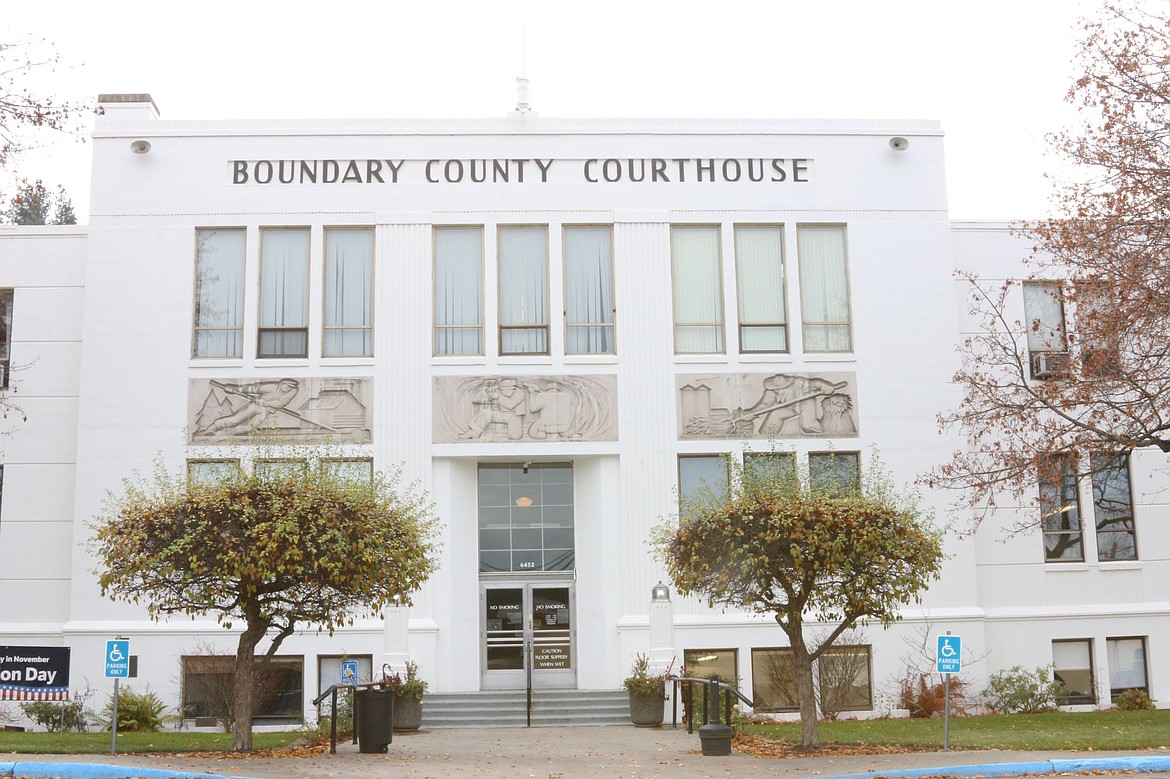Mistrial requested in lewd conduct case
BONNERS FERRY — A mistrial has been requested by the defense for a man found guilty of lewd conduct by a jury on July 13, 2023.
The jury found Vernon “Dave” David Judson Martin, 62, guilty of the charges of lewd conduct against a 9-year-old, a felony. However, Chief Deputy Public Defender Catherine E. Enright argued that her client's constitutional right to a fair trial before an unbiased jury had been violated due to the actions of the prosecution's law enforcement key witness’s interactions with a juror. She then submitted a motion for a mistrial on July 20.
On the trial’s second day, after the case was heard by the defense and prosecution, the court broke for a lunch break. After court proceeded and the jury received jury instructions, Chief Deputy Prosecutor Tevis Hull approached the bench and asked that the jury exit the room.
Hull told the court that when returning from lunch break he saw that Bonners Ferry Assistant Chief Marty Ryan and one of the jurors talking on the steps. He noted that the juror was not wearing a badge which showed she was a member of the jury.
Hull said he stopped the conversation, and the juror divulged that she approached Ryan and that his wife had baby-sat her son 18 years ago. She said their conversation only included catching up on their kids.
In the motion for a mistrial, Enright argued that although the prosecution had stopped the conversation, “damage” was already done.
At the time of the trial, Hull suggested the juror be named the alternate and not participate in deliberations. The defense agreed and did not request a mistrial at that time.
Judge Lamont C. Berecz said the conversation between Ryan and the juror, although it was not inappropriate as he found no ill intent, the appearance of “impropriety” and in order to “preserve the record and integrity” of the case, he would excuse the juror.
In the motion for a mistrial, Enright said although the defense agreed to allow the juror to be named as an alternate, upon reflection, the court should have inquired more of the juror and Ryan about to the conversation.
She added that the court could not confirm that the juror didn’t tell the rest of the jury something and had an impact on the ultimate verdict.
“One could assume that a juror who could not be bothered to respect the rules about not contacting any of the parties or witnessed in this matter would not be bothered to follow any of the other rules about allowing any other outside influence into the jury and not discussing the matter until it is submitted to the jury for deliberations,” Enright wrote.
During jury selection the first day of trial, the juror in question had raised her hands with many others when asked if she knew of Officer Ryan. She had divulged that his wife had provided child care for her 18 years ago, but that he relationship had been mostly with his wife and not Ryan.
Another man of the prospective juror also knew Ryan, due to being a longtime resident and Ryan’s longevity at BFPD.
Judge Berecz had said with small towns like Bonners Ferry, it is common that members of the jury know of people involved in the case and other jurors. It is the nature of small communities.
On Aug. 23, Hull, representing the state, responded to the motion. He said both the state and the defense had rested their cases, and the state’s rebuttal was complete when the conversation between the juror and Ryan occurred.
Right after the lunch recess, Hull approached the bench to take up an issue outside the presence of the jury. He added the “reasonable solution” to the interaction was excusing the juror and found the interaction “inappropriate, but not ill will.”
He added that once the juror was excused as an alternate; she no longer had access to the courtroom and the jury room, and therefore was never given the opportunity to deliberate or visit with fellow jurors.
Per Idaho Code, jurors outside from the courtroom cannot discuss the case with anyone during the trial. They cannot discuss the case in any way until they begin deliberations. Per jury instructions, they are also not to form an opinion or merit to the case or evidence until deliberations.
He went on to say that the defense could have made a motion for a mistrial during the trial, but didn’t. In addition, he noted that the defense doesn’t cite any of the grounds for a mistrial outlined in Idaho Code 19-2406 and that the motion must be denied.
On Aug. 25, there was a motion hearing to release Martin on his own recognizance and a motion for a mistrial. Judge Berecz denied both motions. Martin will remain in jail until his sentencing on Oct. 6.

